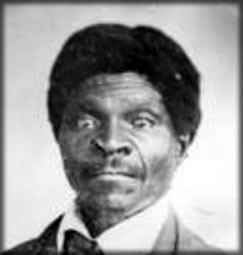Andy Sullivan: Against the Grain
We’ve all heard(and most have likely said) the phrase “if it ain’t broke, don’t fix it”. What it means is self-explanatory. Where it originated is quite another story. Humans seem to have the urge to improve things. Prehistoric hand-axes were made by repeatedly chipping small flakes off pebbles of flint with other hard objects. Million-year-old examples of these have been found that give the impression of being ruined by being chipped just one time too many. That pang of regret we have probably all felt after spoiling something by adding that unnecessary final touch was first faced by Ugg in his cave.
The thought may be Stone Age but the phrase 'if it ain't broke don't fix it', which sounds as though it might come from the Roosevelt or Truman era, is more recent than that. This one is widely attributed to T. Bert (Thomas Bertram) Lance, the Director of the Office of Management and Budget in Jimmy Carter's 1977 administration. He was quoted in the newsletter of the US Chamber of Commerce, Nation's Business, May 1977:
Bert Lance believes he can save Uncle Sam billions if he can get the government to adopt a simple motto: "If it ain't broke, don't fix it." He explains: "That's the trouble with government: Fixing things that aren't broken and not fixing things that are broken."
Lance certainly did popularise the term but it seems to have been a colloquial phrase in the southern states of the USA before his celebrated use of it; for example, this piece is from the Texas newspaper The Big Spring Herald, December, 1976: "We would agree with the old Georgia farmer who said his basic principle was 'If it ain't broke, don't fix it.'"
Preaching to the choir is another phrase we’ve heard forever. It means exactly what you think it would: pointlessly try and get a group to agree with your view with which they already agree. Another is “wouldn’t hit a lick at a snake”. This is basically that the person is lazy and won’t even do the bare minimum amount of work.
How about the phrase “Scot free”? Dred Scott was a black slave born in Virginia, USA in 1799. In several celebrated court cases, right up to the USA Supreme Court in 1857, he attempted to gain his freedom. These cases all failed but Scott was later made a free man by his so-called owners, the Blow family. Knowing this, we might feel that we don't need to look further for the origin of 'scott free'. Many people, especially in the USA, are convinced that the phrase originated with the story of Dred Scott.





























